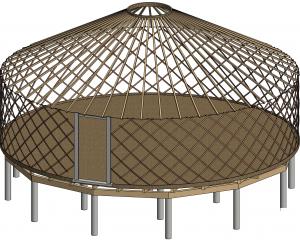''There is a lot of sheer frustration out there,'' Mr Dippie told the Otago Daily Times yesterday.
''I'm not talking about non-complying or difficult projects particularly - the everyday stuff is an eye-watering minefield of over-bureaucracy.''
Mr Dippie was commenting in the wake of Social Housing Minister Bill English saying council policies, particularly in Auckland, were increasing inequality and poverty by making permission to build houses expensive and complex.
Mr Dippie, who is behind the major Three Parks subdivision, said the Queenstown Lakes council's development contributions were among the highest in the country and were making it ''very hard'' to develop affordable land.
''The development contribution is the highest single factor that makes up the cost of producing a section,'' he said.
He believed there were serious flaws in the way councils calculated some contributions and he hoped changes in government legislation would bring greater transparency and accountability.
Mr Dippie also believed the council's planning processes had ''in many ways gone from bad to worse''.
''It's now taking longer and costing significantly more to do anything in the district.
''It's an incredibly pedantic and overly cautious culture that prevails unfortunately.
''This is having a serious effect on both timing and cost.''
In response, general manager planning and infrastructure Marc Bretherton said there had been an increase in development and an increase in more complex applications.
Resource consent applications for the year to date totalled 806, compared with 856 for all of 2013 and 806 for 2012.
Mr Bretherton said the average time taken to process a non-notified consent over the past 12 months was 12 working days and that had not changed from 2013 and 2012.
The median cost per non-notified resource consent this year was $1441, compared with $1411 in 2013 and $2763 in 2012.
The last annual survey of residents showed an 11% increase in satisfaction with consenting processes over the previous year, ''albeit from a low base of 23%''.
Consents were ''an inherently difficult area to keep people happy,'' he said.
''Developers in particular often equate satisfaction with getting what they want and bad service as being not allowed to do what is sought.''
Mr Bretherton said the council was obliged to be fair and balanced and was sometimes criticised by residents and environmental groups for being too lax.
Mr Dippie's assertion the council was one of the biggest impediments in the local economy was not borne out by the facts, he said.
''Our annual economic growth has been consistently in the top two or three districts for the past 10 years.''
He agreed development contributions were high but that was ''simply a by-product'' of high levels of development.
''Current ratepayers should not be funding through their rates the additional costs to the community from new developments.''
Mr Bretherton said the council intended to ''simplify and streamline'' processes by producing a clearer and more user-friendly district plan.
Other measures, such as trialling fast-track resource consent processing, had also been introduced, he said.











